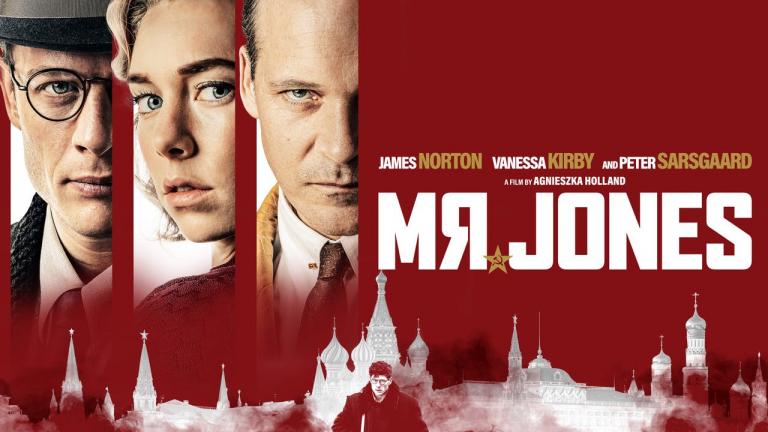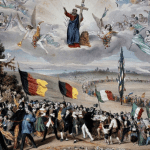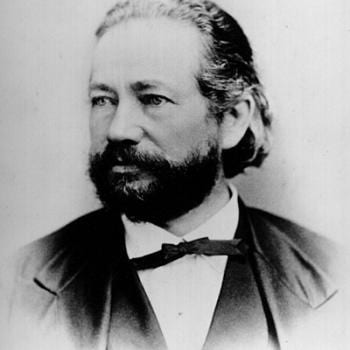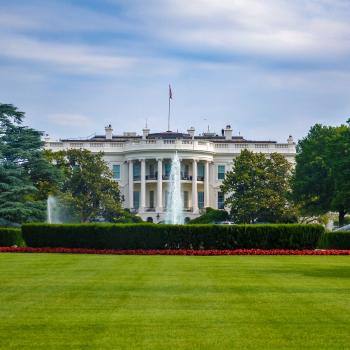
Rarely is there a movie that features truth as its central theme. Mr. Jones, the story of Welsh journalist Gareth Jones’ fight to reveal the Holodomor (see Anne Appelbaum’s Red Famine (2017))— Stalin’s manmade famine in Ukraine— to the world, is such a film. The movie’s U.S. release, scheduled for April of this year, was stunted by COVID-19.
James Norton (Grantchester), who is rumored to be in the running to be the next James Bond, delivers an impassioned and convincing performance in the lead role, with The Crown’s Vanessa Kirby as Ada Brooks (Jones’ confidant, if he had one), and Peter Sarsgaard (Garden State) as the infamous Pulitzer Prize-winning, New York Times Moscow bureau chief, Walter Duranty. Sarsgaard’s rendition of the notoriously perverse Duranty is earnest and chilling. Josephy Mawle (Game of Thrones) is George Orwell which works if only because he looks like a slightly more handsome brother of his character.
Indeed, the presence of Orwell in the film, in a way, guides the narrative. Interspersed throughout Jones’ travels and reporting are scenes of Orwell typing up Animal Farm (1945), the voice of the author overlaying the horror witnessed by Jones in the Ukraine. “All animals are equal, but some are more equal than others,” is heard in the voice of the author as the journalist approaches a bread line where people are beating each other half to death in the frozen mud over black, moldy rations.
***
Its 1933. Gareth Jones, a Cambridge grad who specialized in linguistics, is a precocious upstart working for then prime minister Lloyd George as a foreign advisor. At the time, Jones had already garnered some international attention as the only person to have interviewed Adolf Hitler and Joseph Goebbels, an interview which led him to believe that Germany would invade Poland and, perhaps, the rest of Europe—mainly because Hitler and Goebbels had told him as much. No one believed him. An early scene features Jones getting laughed out of a cabinet meeting for presenting this prediction. A foreshadowing of things to come, George and others in the room tell him that no one in London would ever entertain such an idea because the last war was too fresh and the economy was struggling, as if the preferences of Londoners would sway the Nazis.
The film keeps good pace, which is refreshing given that we’re all used to monotonous superhero movies now. It’s a relief to know, form the start, that you’re engaged in a story with no possibility of sequel, upon sequel, upon sequel. In short order, Jones, after being sacked (because the budget doesn’t support someone whose only utility is fantastical theories about another world war), makes his way to Moscow as a freelance journalist with the aim of interviewing Stalin.
Upon arrival, Jones realizes that he’s being watched, that his travel is restricted, and that he is at least supposed to remain confined to the general vicinity of his hotel. He soon learns that his local contact has been murdered, by bandits, the official story goes. But perhaps more appalling to Jones’ boy scout instincts and teetotaler sensibilities is the lifestyle of his fellow western journalists in Moscow, amongst them the famous Malcom Muggeridge who was, as we know now, reporting on the Ukrainian genocide under a pseudonym. The other journalists are not so engaged, or even curious.
On Jones’ first night in town he is invited to one of Duranty’s notorious bacchanals. All manner of debauchery is present, none of which does Jones participate in. Instead, he rather pitifully attempts to grill people about access to Stalin and inquires as to how the Soviets are paying for their unprecedent industrialization. The answer, as he comes to find out firsthand, is Ukrainian grain. But everyone at the party is too interested in the drugs, booze, and women to pay attention, to Jones or Stalin. A self-satisfied Duranty strolls around the sprawling apartment wearing nothing but his prosthetic leg and signature, rabbit-topped walking cane. This may be the one scene that Christians will want to skip through. Nudity flashes back and forth in the background. An inebriated woman attempts to enlist Jones in helping her shoot up heroin. He declines and leaves early. But the Caligula-like scene, filmed like the inside of a fever dream, is not meant to be indulgent. It is clearly intended to put off the viewer and highlight how aloof, disinterested, and self-assured the western “elites” were in the early days of Stalin’s regime.
Later on, when Jones encounters starving children in the now barren black lands of the south, Duranty’s party is involuntarily remembered. Whilst the Kulaks were made to feel everything for the sake of Stalin’s five-year plan, the elites and their western friends were allowed to feel nothing and lie about it as they feasted on the fruits of starved laborers. The stark inequality, especially for what was then though to be the great egalitarian hope, is startling. One wonders whether the self-induced numbness of Duranty and his comrades was the result of sheer arrogance or a subconscious effort to cope with their own willful blindness.
Left with a lead from his deceased Russian contact, Jones suspects the answer to his questions lies in Ukraine. With the reluctant help of Ada, he finagles his way onto a southbound train and then, having escaped his handler, spends three weeks in the countryside on his own. The horrors that meet him there are truly ghastly. After subsisting on tree bark during his wilderness excursion, Jones eventually makes it back to London where he publishes his findings. Duranty, of course, was a fellow traveler and in the Kremlin’s hip pocket, and swiftly mounts a campaign to publicly ruin Jones. Duranty took to the pages of the Gray Lady to downplay Jones’ reporting, chalking it up as hysterical and lacking perspective. “Russians Hungry, But Not Starving,” ran one headline of Duranty’s. Ukrainians and residents of the north Caucasus were experiencing food “shortages” and some disease, but nothing like what the delusional Jones was saying (i.e. that Stalin was systematically murdering his own people by looting their grain stores).
Duranty, a complicated figure, to say the least (see Francis Maier’s brief piece on him at First Things), seems to oscillate in the film between pure nihilism and pragmatism and genuine belief in the advent of the modern, egalitarian man. A pessimistic true believer. This came through in his writing wherein he simultaneously admitted many of Stalin’s crimes but always justified them as necessity. It was all part of the plan. Growing pains were to be expected when one was trying to remake the nature of man. “[T]o put it brutally,” read one of his columns, “you can’t make an omelet without breaking eggs,” Ukrainian eggs that is. His was a grotesque existence. The only apparent guide to Duranty’s life was either self-aggrandizement or the god of Progress. For him, the two may have gone hand-in-hand. Certainly, he envisioned himself as the modern man.
“Though all the winds of doctrine were let loose to play upon the earth, so Truth be in the field, we do injuriously, by licensing and prohibiting, to misdoubt her strength. Let her and Falsehood grapple; who ever knew Truth put to the worse, in a free and open encounter?” So said Milton in the Areopagitica (1644), an apt quote for its connection between free publishing and the pursuit of truth. Gareth Jones was guided by that ideal, if in a Pollyanna sort of way. The truth will out.
Duranty inquires as to Jones’ agenda in an early scene. The latter admits he has none, “Unless you call truth an agenda.” “Yes, but whose truth?” replies Pontius Pilot. Later Jones waxes eloquent about the journalistic profession, marked by its dedication to unvarnished truth. The question is again posed to Jones, this time by Ada, “Whose truth?” More forcefully this time: “The truth! There is only one kind!” “That’s so naïve,” she says.
Jones’ dogged pursuit of the truth is, indeed, refreshing. But he paid the price for looking for it where no one else wanted to. He was slandered, publicly humiliated, and (most likely) murdered by Soviet agents a few years later whilst trekking about Mongolia— payback for being the only one to tell the truth.
Gareth Jones makes one long for a day when journalism was the pure profession he believed it to be. Perhaps it never was. Duranty, who died known as Stalin’s apologist, for all his lies, was never stripped of his Pulitzer. One will remember that just this year a Pulitzer went to a piece of writing (in Duranty’s journalistic alma matter) that has been thoroughly and publicly proven fallacious, historically dubious. The author has since admitted as much. Never mind, though, it was all for a righteous cause. What is truth? “The movement is bigger than any of us,” as Ada says to Gareth at one point. For her, this justified sacrifice, of both truth and human lives.
***
The uniqueness of Mr. Jones is how it emphasizes the complicity of western elites and intellectuals in the Soviet enterprise. If truth is the them, then complicity is the anti-theme. Even Orwell, at first, is skeptical of Jones’ stories coming out of Ukraine. Stalin never had to earn the trust of the upper echelons of Britain and America. Everyone wanted to believe. They were tired of struggling. If it’s all a lie, Orwell says to Jones at one point (in a probably apocryphal scene) “then what hope is there?” A mix of helplessness, blind hope, baseless optimism, and fear led the elites, the supposed gatekeepers, to carry water for what they knew, or should have known, was a lie.
***
Coincidentally (and appropriately), right around the time I watched Mr. Jones (available on Amazon) I was reading Ryszard Legutko’s fascinating study, The Demon in Democracy: Totalitarian Temptations in Free Societies (2016). Therein he chronicles the socio-political dynamics of Soviet-era Poland, and argues that the trends and proclivities begun by communism did not fall with the Berlin wall. Rather, they are perpetuated, and in some ways, exacerbated by liberal democracies. The totalitarian impulse, per Legutko, lies deep in every liberal regime. But for our purposes, I want to draw out some of his insights about how Christian intellectuals in particular acquiesced to communism.
Unfortunately the Christian faith did not make the believers immune to the communist temptation. For a long time there was a trend in Christianity with an obsequious proclivity toward communism and socialism, which probably sprouted out of common strong anticapitalist sentiments, but also of a conviction shared by some Christians, but not reciprocated by the secular Left, that both Christianity and socialism in their roots stemmed from the same moral impulse, the good of the people… Thousands of pastors and Roman Catholic and Eastern Orthodox priests joined the system and for many years served it faithfully out of stupidity, opportunism, ideological blindness, or betrayal, all of which they supported with pathetic intellectual contortions.
A bit later he adds:
Behind the decision of quite a few of those Catholic intellectuals who decided to converse with the Marxists was a sort of practical imperative. They felt that socialism/communism was inevitable, ubiquitous, and philosophically unchallengeable, and therefore thought it a matter or urgency for the Catholics within the world as it was (or, rather, as they believed it was) to find a safe place and obtain some kind of official intellectual legitimacy.
The net result was “an essential asymmetry between the two sides.” Christianity had to cede to communism at every turn.
The Marxists, in turn, made no concessions at all. They noted with satisfaction the fact that progressive Catholics finally came to accept socialism, although they should have done it sooner, and that they came to denounce bad Catholics, although they should have done it more forcefully. To the Catholics’ postulate the Marxists responded that of course the Catholics could find their place in the process of building socialism, but they must be aware that socialism had the higher value and that because the historical record of the Church was ugly, they should try harder than others to earn the trust of the socialist community.
There are patterns from Legutko’s account reemerging today, certainly amongst the intellectuals and elites generally, but also with Christian thought leaders, denominational heads, theologians. Christianity has proven a not quite reliable insulation from the ascendant soft totalitarianism of wokeness. Marxist-Leninism (i.e. Stalinism) does not, and likely will not ever, threaten us in the same way as it did in Gareth Jones’ day. (Although the demonstrable lack of historical awareness regarding the crimes of the Marxists makes me question that statement more than a little bit. There are few, if any, monuments to the victims of communism. Lenin and Stalin don’t carry the stigma that Hitler does, despite the fact that the former two accomplished, in terms of human carnage, what Hitler could’ve only dreamed of. Jason Morgan is right; we need a Nuremberg for communism. Perhaps then people would start rightly associating Marxism with gulags, or man-made famine.
But ideas are not stagnant. They’re adaptable, like viruses. And it is discouraging today to see clear instances of revisionist, cultural, western (whatever term you prefer) Marxism (mixed with a good deal of postmodern thought) circulating not only on secular college campuses (where it has been incubating for decades), but at evangelical seminaries. It is troubling to find evidence of the cult of antiracism and the thought patterns (and language) of critical theories penetrating some of the largest denominations in the country. This has not been a grassroots movement. It is the result, in most cases, of, perhaps, well-meaning intellectuals adopting a conciliarist approach to cultural pressures (i.e. “the movement is bigger than any one of us”) in order to preserve social and political capital— or as it is often put, our public witness. In some cases, it seems that a theological deficiency has provided room for foreign ideologies to sneak in; in other cases, the door was intentionally left unlocked and ajar. In both scenarios, as Christopher Hitchens said, the denial always proceeds the justification, and the justification is always marked by (returning to Legutko) “pathetic intellectual contortions.” Whatever the case may be, Christian intellectuals must realize that the relationship is asymmetrical; they will make all the concessions and the faith of social justice will offer none.
Image Credit: Samuel Goldwyn Films












